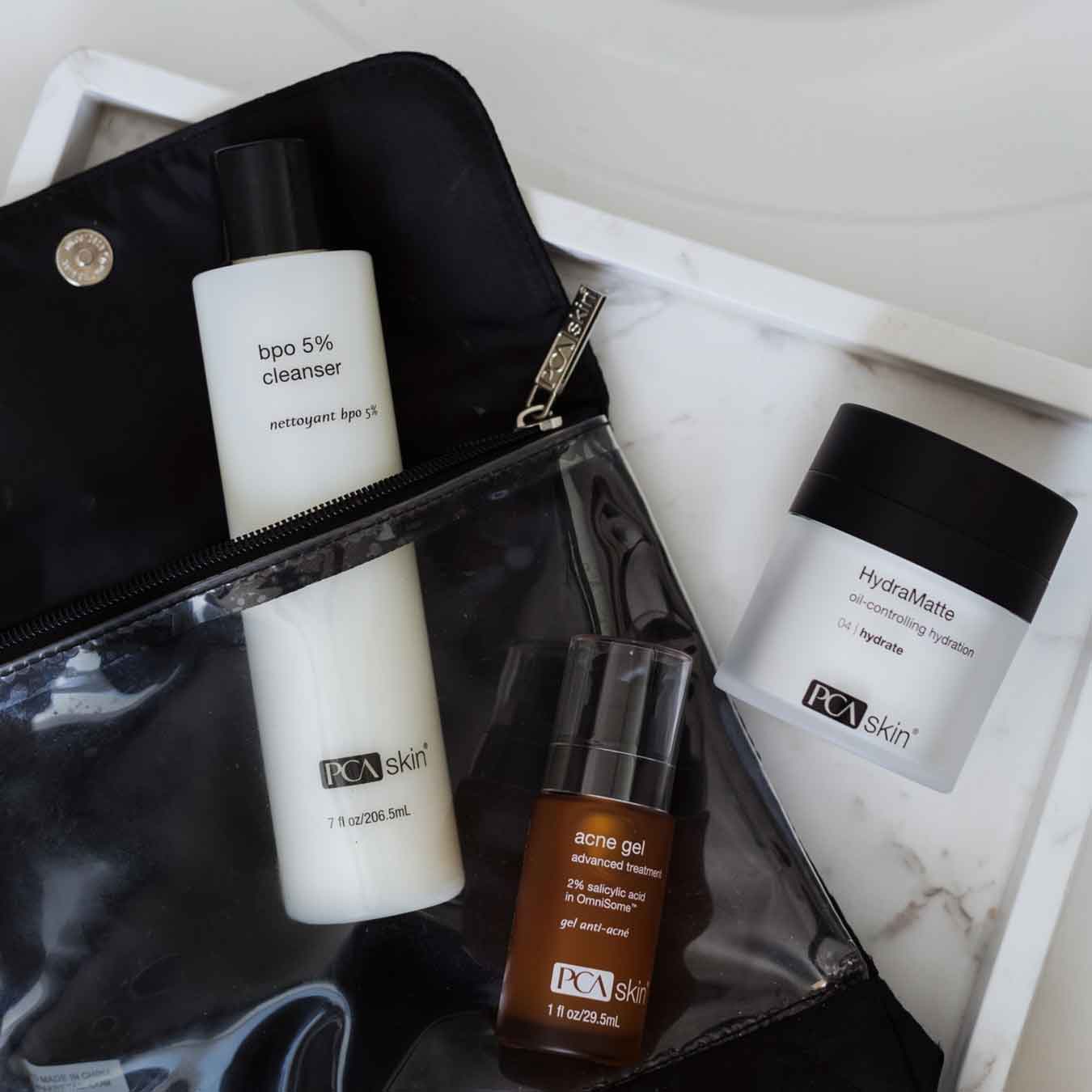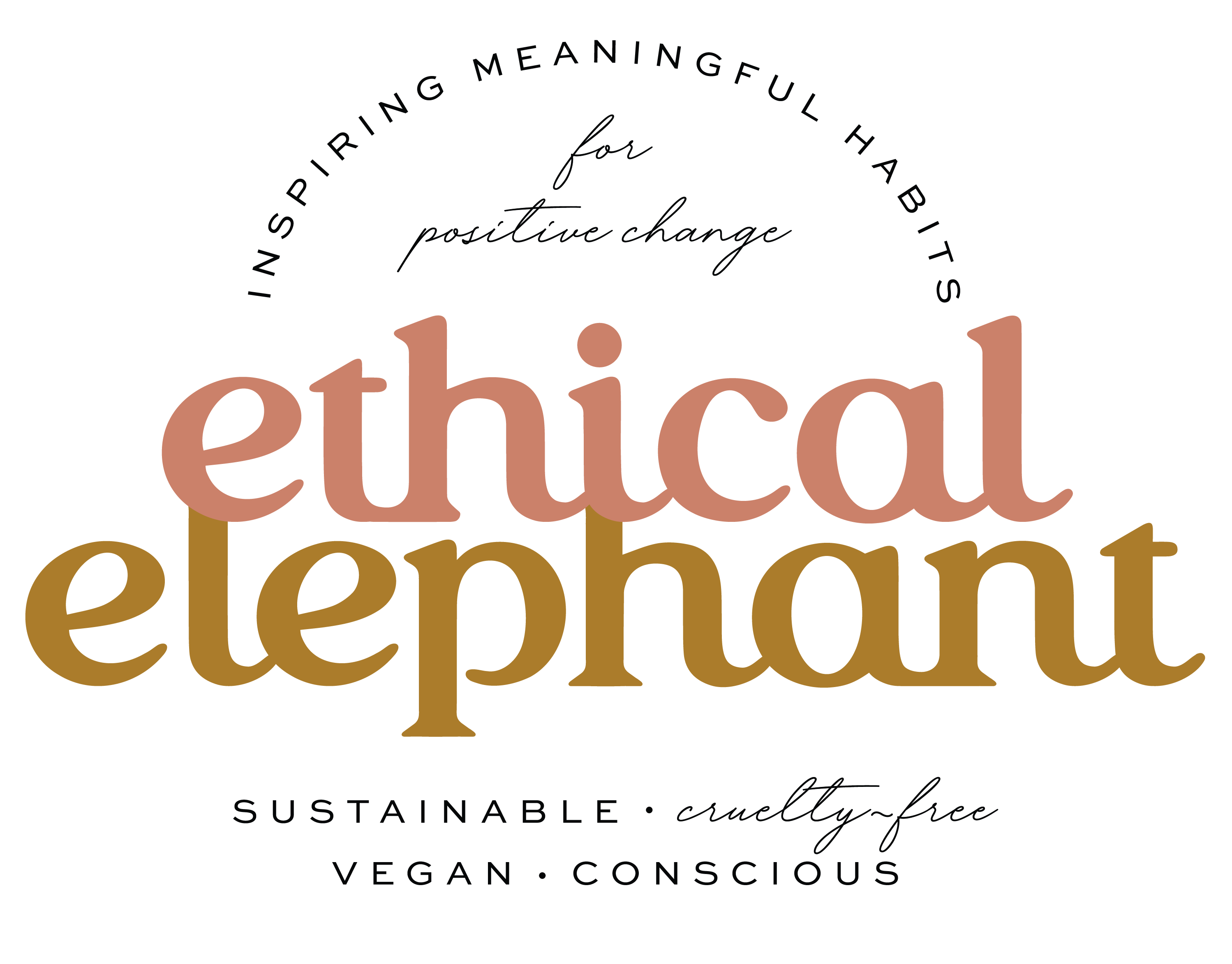This post may contain affiliate links that at no additional cost to you, I may earn a small commission.
PCA Skin is NOT Cruelty-Free!
PCA Skin allows its products or ingredients to be tested on animals when required by law including when selling in stores in mainland China.
PCA Skin’s Animal Testing Policy
On PCA Skin’s website, they claim they do not perform or condone animal testing at any point during the formulary process. However, the email response I received from the company states otherwise.
See below for a screenshot of what’s currently stated on PCA Skin’s website:
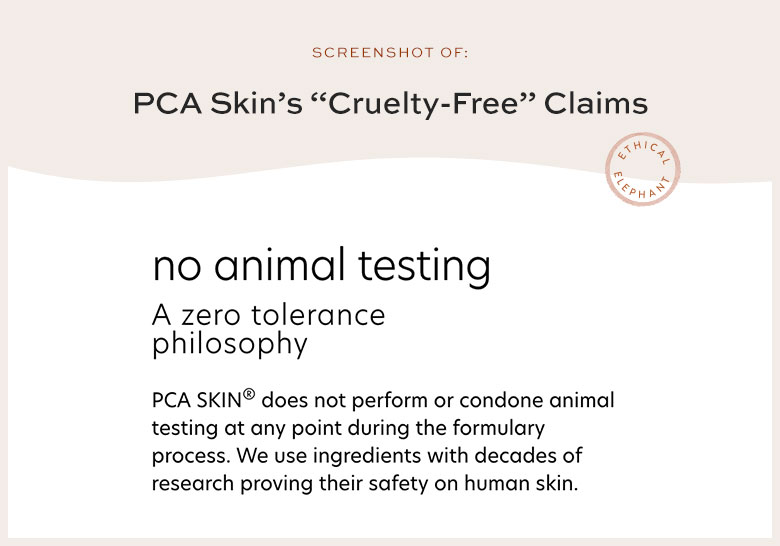
PCA Skin’s statement that the company itself does not perform or condone animal testing is not enough information for us to classify PCA Skin or any other brand as being cruelty-free according to our standards.
That’s because PCA Skin claims they don’t test on animals during the formulation of their products, however, animal testing for cosmetics can happen after product formulation and before its sold to customers.
Also, animal testing for cosmetics is often done by others and not the cosmetic company itself. This is why we always assess a company’s cruelty-free policy using our Cruelty-Free Checklist. This ensures no animal testing was performed by the brand itself, its suppliers, or any third parties.
So I reached out to PCA Skin to ask for more information about their animal testing policy. More specifically, I wanted to know if they commission or allow others to test, not just their formulations and ingredients but their finished products, on animals, including when selling in countries that require animal testing (like in mainland China).
And PCA Skin responded by saying:
“Thank you for your email and your interest in PCA Skin. I appreciate your questions, and below is PCA Skin’s response when asked about animal testing:
PCA Skin® over it’s 30 year history has not performed or condoned animal testing at any point during the formulary process. We use ingredients with decades of research proving their safety and efficacy on human skin. As we expand globally, China is a market which requires animal testing in some cases to meet their regulatory requirements. We have partnered with industry groups in China, and are working hard to align Chinese requirements with globally accepted non-animal alternatives.
We look forward to a day when all necessary safety studies can be performed without the use of animals, and we will continue to work to make that day come sooner.”
Policies stating China’s animal testing laws usually imply the company is selling its products in mainland China. That’s because cosmetics sold in stores in mainland China are required by law to be tested on animals.
And based on the response I received from PCA Skin, the company admits that as they expand into China, the market requires animal testing. Although PCA Skin states they are working with industry groups in China to accept non-animal alternatives, their law currently requires most imported cosmetics to be tested on animals.
Is PCA Skin Sold in China?
According to Business Wire, PCA Skin is “distributed in the U.S., China and certain other international markets.”
Also, I found an image from PCA Skin’s website of a map showcasing where their products are distributed, among those markers is one on China (see below for a screenshot):
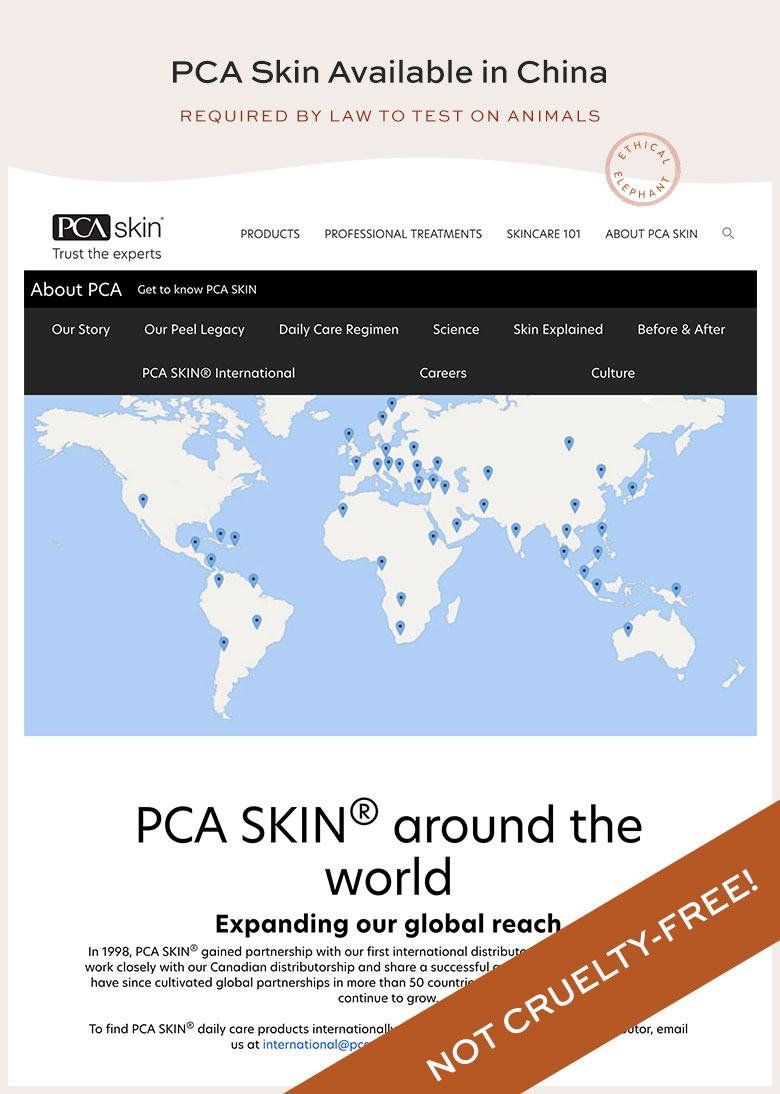
But Doesn’t China No Longer Tests on Animals?
Companies can bypass China’s pre-market animal testing by choosing to manufacture their ordinary or general cosmetics in China, but it’s not stated anywhere that PCA Skin has taken this route.
Additionally, the possibility of post-market animal testing is not completely ruled out and may be conducted on some cosmetics sold in physical stores in China.
As of May 1, 2021, cosmetic companies can also export and sell their ordinary or general cosmetics in China without animal testing only if they meet a set of preconditions first. However, meeting these conditions has proven difficult, and it’s still unclear what exactly is accepted according to the new regulations. So there’s no word yet of any company that has successfully done so.
Follow the highlighted lines in the graphic below to see why most cosmetics sold in China (like PCA Skin) are still required by law to be tested on animals in 2022.
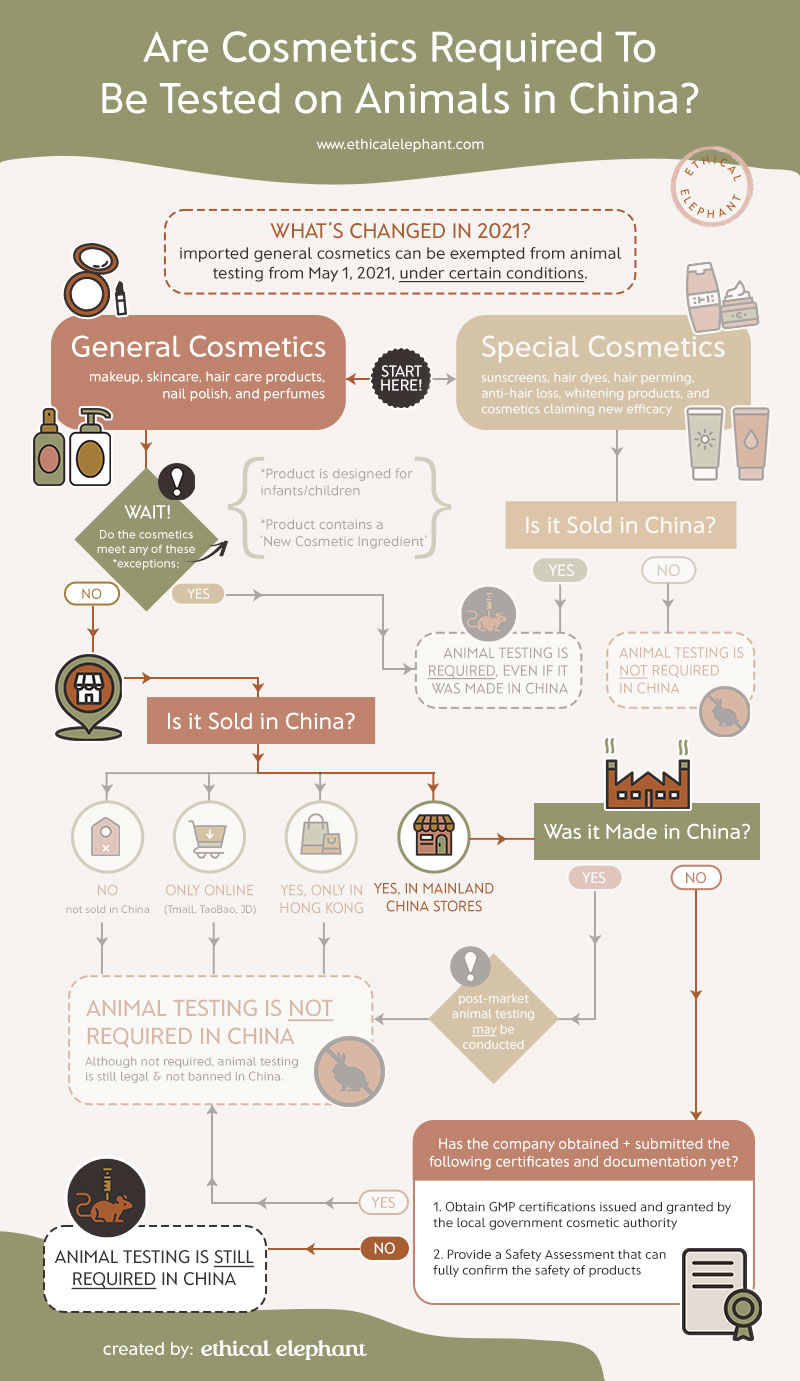
Because PCA Skin has decided to sell in mainland China stores, they must consent and pay to have their products tested on animals. That’s why most cosmetics brands selling in mainland China cannot be considered cruelty-free in 2022.
Although PCA Skin may not be conducting these animal tests themselves, they knowingly allow Chinese authorities to test their products on animals to sell in China.
For those reasons, we would not consider PCA Skin to be cruelty-free by our standards.
Cruelty-Free Policies
Many truly cruelty-free brands have chosen not to sell their products in China because of its animal testing laws. Unfortunately, PCA Skin refuses to do the same and therefore cannot be considered cruelty-free.
At ethical elephant, we always assess a company’s cruelty-free policy using our Cruelty-Free Checklist. This ensures no animal testing was performed by the brand itself, its suppliers, and by any third parties, including when required by law.
See below for our complete cruelty-free checklist. Since PCA Skin already does not meet the last two, we cannot classify the brand as being cruelty-free.
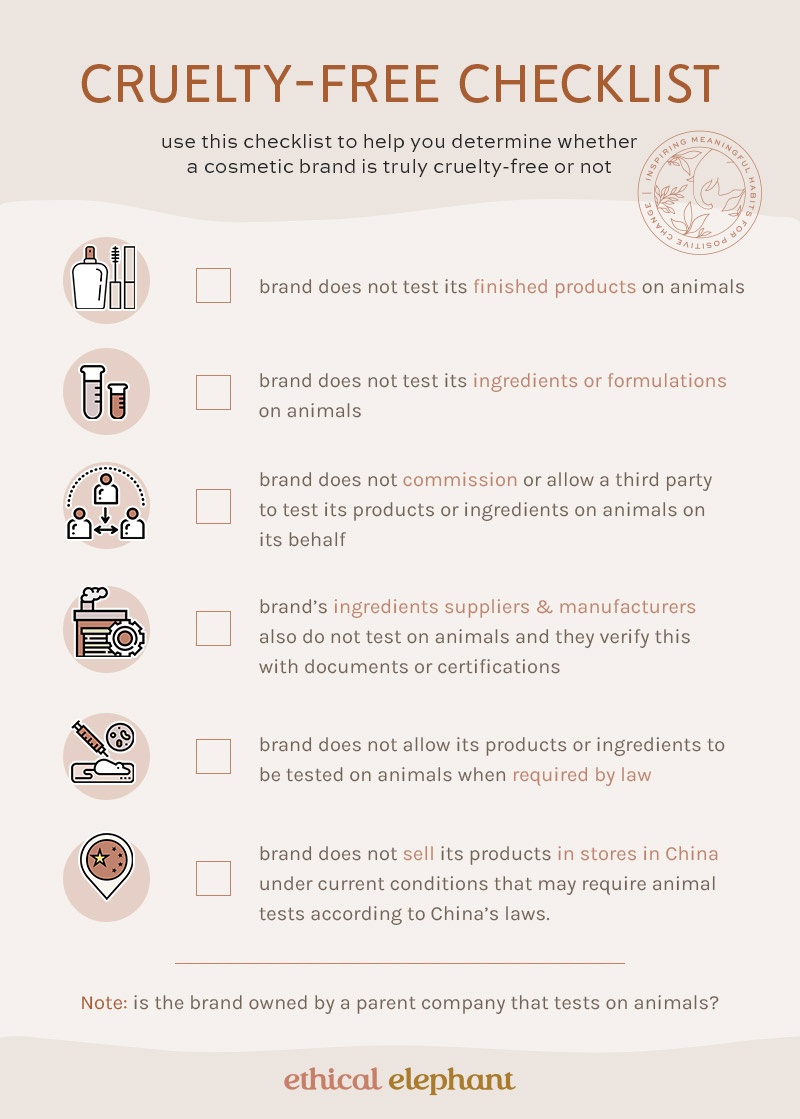
Is PCA Skin Certified Cruelty-Free?
PCA Skin is not certified cruelty-free by any third-party cruelty-free certifications like Leaping Bunny or PETA.
Because PCA Skin is not certified cruelty-free by a third party, no one is looking into or substantiating PCA Skin’s cruelty-free commitments and claims.
Is PCA Skin Owned By A Non-Cruelty-Free Parent Company?
Yes. PCA Skin is owned by Colgate-Palmolive, a parent corporation that still engages in animal testing in 2022.
Some cruelty-free consumers may choose to purchase and support cruelty-free brands owned by animal-tested parent corporations as they hope it will convince the parent company to become cruelty-free.
But in this case, PCA Skin is NOT cruelty-free and neither is its parent corporation, Colgate-Palmolive.
Is PCA Skin Cruelty-Free?
To sum up, by choosing to sell in mainland China, PCA Skin must have its products tested on animals. Therefore, we would NOT consider PCA Skin to be a cruelty-free brand.
Currently, PCA Skin is on our List of Brands to Avoid – Animal Tested.
Is PCA Skin Vegan?
PCA Skin does not claim or market itself to offer any vegan-friendly options. And since PCA Skin engages in animal testing, we wouldn’t consider anything sold or produced by PCA Skin to be vegan anyways.
In order for products to be considered vegan by ethical elephant’s standards, the products and their ingredients must not be tested on animals anywhere in the world. Also, they must not contain any animal-derived ingredients or by-products.
Cruelty-Free Alternatives to PCA Skin
Looking to switch to cruelty-free products? Here are some cruelty-free brands to check out:
- Dermalogica *owned by Unilever
- Dr. Dennis Gross
- Dr. Barbara Sturm






